SALIMA; stories of recovery and resilience in Palorinya refugee settlement
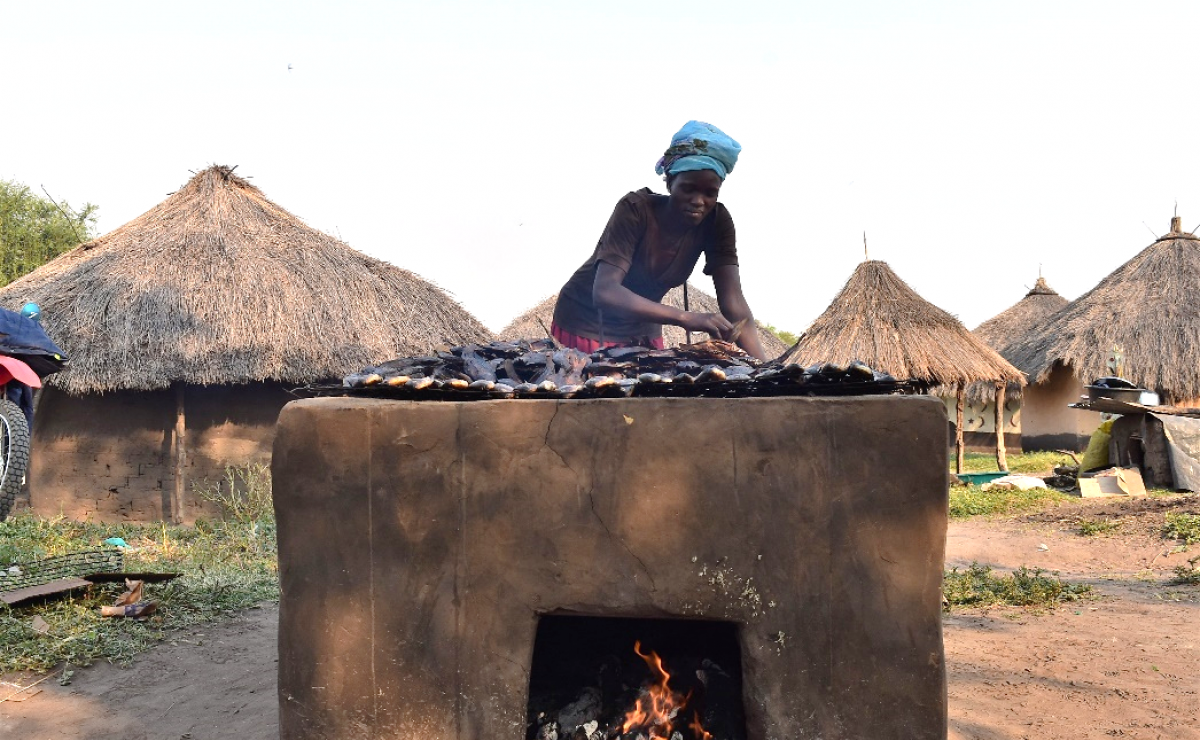
With funding from the Bureau of Population, Refugees, and Migration (PRM), Lutheran World Federation (LWF) enables vulnerable groups and individuals to get — and stay — on their feet. Through skilling, cash grants, savings schemes and knowledge transfer, people pave way for a better future for their families and communities at large.
“My life has drastically changed; I can now afford basic living” Nuela says. She is one of the over 1,200 people supported with cash grants by the Lutheran World Federation (LWF) with funding from the Bureau of Population, Refugees, and Migration (PRM).
As the sole bread winner of a family of 6, putting meals on a table was a struggle before she entered the business competition advertised by LWF. Her business proposal with a costed plan was selected for booster support by the multistakeholder team of OPM, local officials, refugee welfare council (RWC) and LWF. Now she runs her fish business with her mother, and having nearly tripled her income, can even save to expand. For even more secure future, Nuela is planning to diversify her business with a boutique in Obongi trading center. The savvy businesswoman hopes to invest in up-to-date fish processing technologies to meet the needs of the changing market environment.
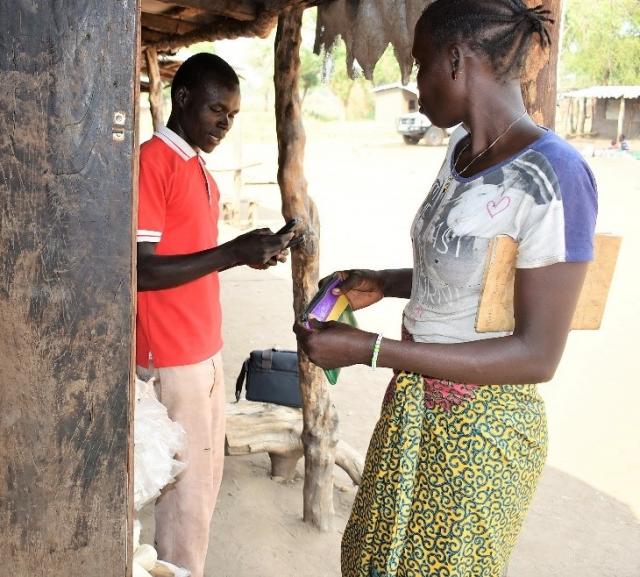
As a hard-working young man, Butele always desired to start a business, but was constrained by limited capital and business skills. The earnings from the struggling fishing business barely took care of the big family’s basic needs. Like Nuela, he applied for and received a cash grant and training on entrepreneurship skills and financial management. Butele used the money to set up a retail shop, buy a solar and battery system for lighting and phone charging, and register for airtime easy load services.
Along with diversifying into several enterprises, Butele is now able to buy scholastic materials for his siblings, and afford medical care for the entire family. With the earnings from the business, he is laying bricks to construct a shelter for his young family. Butele is proud to say that his social status within the community has changed, “previously, community members always looked at me as commoner but am now respected and the youth come to me for guidance on business startup.”
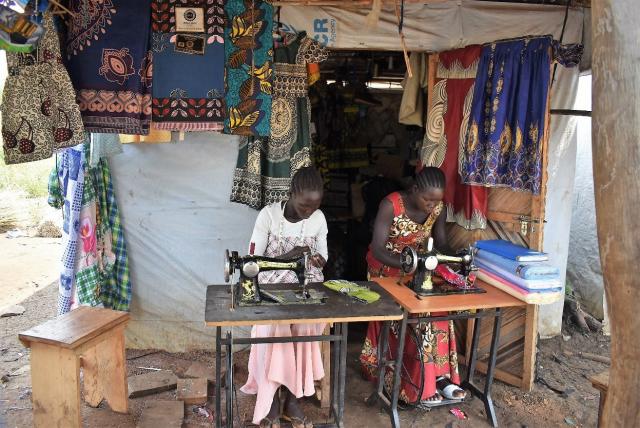
Being a single mother has its challenges. However, being a young single mother, and having to establish a life in a refugee settlement, has challenges that are stacked.
Fleeing to Uganda for safety, Viola struggled to construct a shelter for her family, and to take care of her children. The 22-year-old mother could not afford the basic needs, so she resorted to selling part of her food ratio, but this was not enough. Like many teenage mothers, she had been forced to drop out of school, and was without skills to enable her find employment.
Lutheran World Federation (LWF) strives to provide opportunities for young people, like Viola, to learn vocational skills and earn a living. “The training helped me build skills that enable me to earn a decent living within my community”, notes Viola, who established her business in Palorinya. In 5 months, she has increased her income level 15-fold. With the earnings, Viola was able to buy iron sheets for her house and provide her children with a balanced diet with meat, cabbage, fish among others.
She also joined a VSLA-group named ‘Salvation’, where on a weekly she saves for a revolving fund that enables the members to diversify their businesses. Viola’s entrepreneurial strive pushes her onward; she plans to set up an independently owned stall and store for her materials and workstation. She also plans to buy a second sowing machine to facilitate training of more people. “I would like to thank LWF for selecting me and supporting me all through the processes of learning and setting up my business that helped to change my life.”
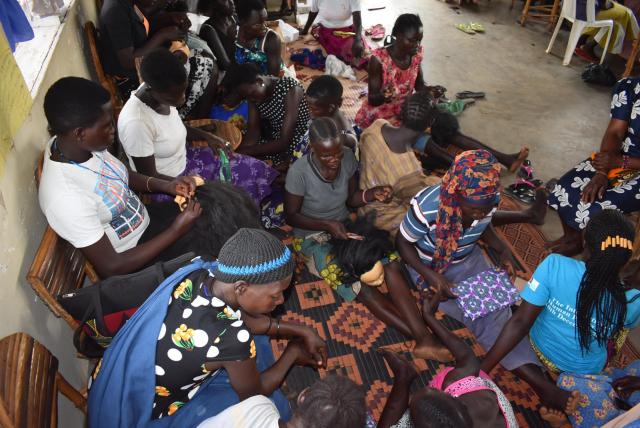
Celine, who has been coming to the centre to learn hair dressing and share life experiences with other refugee women, explains how the place has supported her; "I was very desperate and constantly under pressure because as a parent of seven children I had failed to provide for my children and failed in life as a person... Then I heard about this place from a community leader. Many women from my area were involved in knitting, hairdressing, tailoring, music, dance and drama activities and therapy groups. My first lesson was plaiting bututwa, kafati, babari, twist and pencil styles which happen to be my favorite up to today.”
The training was a stepping stone to secure livelihood; Celine earns a monthly income of UGX 200,000, while she also teaches others, and encourages other women to overcome GBV issues that are paramount within the settlement. She joined an all-women VSLA group at the safe space, and plans to borrow money from the VSLA for a retail business startup.
“During the interpersonal group therapy sessions, a lot of sharing was done and devising ways of forgetting the horrible past, to start a new stress free life full of loving and forgiving, how to stay with mentally challenged people, how to advise sick and drunkard people in our community, and the importance of educating our children." Celine encouraged her husband, who previously found solace in alcohol, to start commercial brick laying. Being able to provide for the family has brought her husband closer to the children, and able to overcome the addiction. For Celine, understanding that mental illnesses are not caused by witchcraft also helped her to support her mentally challenged step-child, whom she had initially rejected; “Am now focused on having a good future for myself and family”
Women safe spaces are designed specifically for women experiencing trauma and gender based violence. In these centers, they are empowered to create change; to offer support to one another, to participate in trainings and psychosocial support activities. Currently, the safe space in Zone 3 Palorinya, refugee settlement accommodates over seven hundred women and girls on a daily basis.
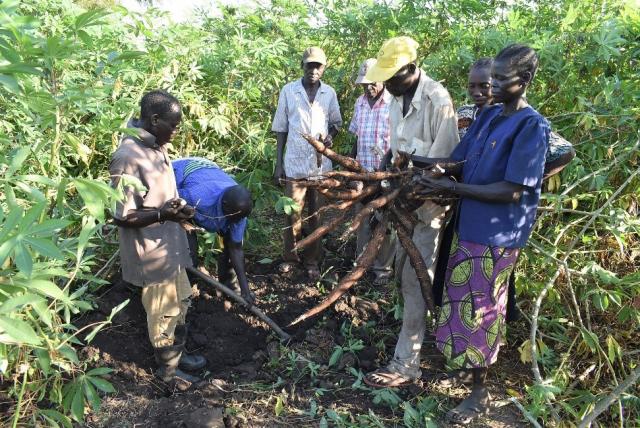
Having a mixed group with both refugee and host community members carries many merits, in addition to ensuring peaceful coexistence between communities in resource-strapped districts. Whereas the refugees are dependent on food distribution, and can only plant limited food crops on their 30 x 30-meter plot, the nationals are engaged in small scale farming at household level, which is less productive and time wasting. Joining forces brings man power and access to land. “As a group, we wanted to undertake largescale farming, but were constrained by lack of capital, no land for farming and we did not have knowledge on business or investment management”.
The group was trained in Farmer Field School approach, climate smart agriculture and VSLA methodology for sustainable livelihood. LWF guided the group in revolving savings methodology, group formation, roles and general assembly, as well as actual saving, action auditing and record keeping. The income will be deposited in SACCO bank operating both in Moyo and Obongi Districts for safety of their money and access for loans.
The group has just harvested 300kgs of sesame and 400kgs of soybeans, while still waiting for 120 tons of cassava to ripen. They also took advantage of the dry season and started laying bricks, with 30,000 produced for sale so far. With the income from selling their produce and joint savings, the group plans to expand the garden for more farming, buy a cassava processing machine for value addition, and most importantly, take care of their families with better diet and being able to cover for basic needs.

